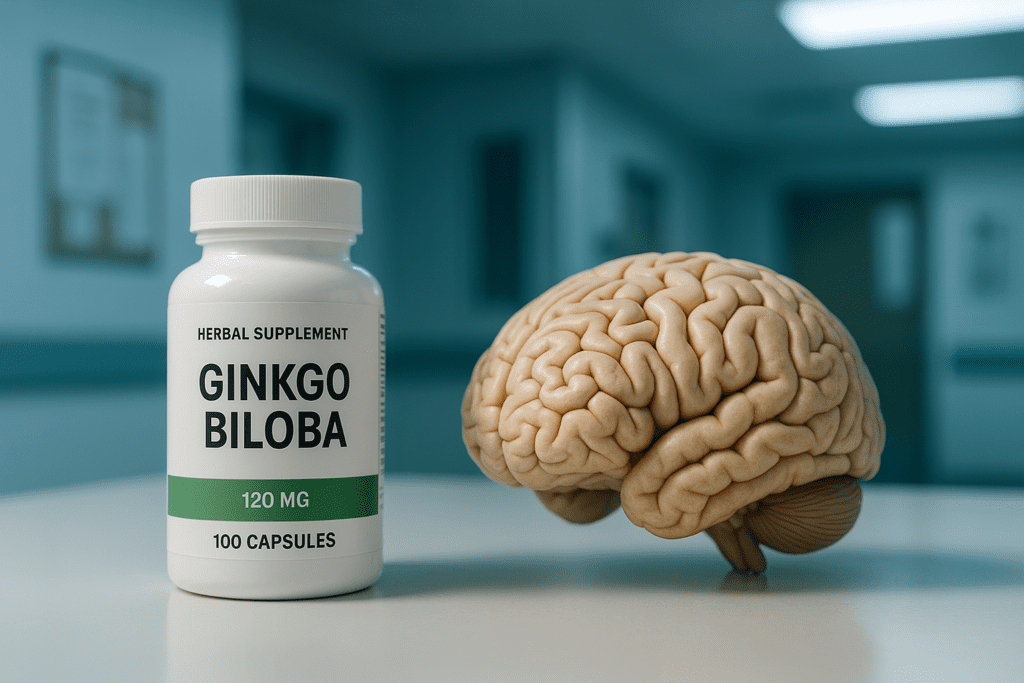In the fast-paced world of modern life, where multitasking is often glorified and digital overload is the norm, many individuals find themselves grappling with persistent brain fog and mental fatigue. These symptoms, while not always indicative of a diagnosable medical condition, can significantly hinder daily productivity, decision-making, and overall quality of life. Brain fog is often described as a cloudy-headed feeling, marked by forgetfulness, confusion, and difficulty concentrating. Mental fatigue, on the other hand, can manifest as a lack of motivation, sluggish thinking, and an inability to focus even after a good night’s sleep. While pharmaceutical interventions are available for certain cognitive conditions, many people seek the best natural remedies to restore clarity and support long-term cognitive health. This article explores scientifically supported approaches to alleviate brain fog and mental fatigue using safe, accessible, and evidence-based strategies.
You may also like: Best Rated Nootropics for Brain Health: Top Supplements to Enhance Focus, Memory, and Longevity
Understanding the Root Causes of Brain Fog and Fatigue
Before delving into the best natural cures and remedies, it’s important to understand the multifactorial nature of cognitive dysfunction. Brain fog and mental fatigue are not standalone medical diagnoses but rather symptoms that can arise from a variety of physiological, psychological, and environmental factors. Nutrient deficiencies, chronic stress, poor sleep hygiene, blood sugar imbalances, and inflammation are some of the most commonly cited contributors. Additionally, hormonal fluctuations, especially in women during perimenopause or menopause, may exacerbate these symptoms. Even mild dehydration can impair focus and memory. Identifying the root cause is a crucial step in determining the most effective remedy, whether natural or otherwise.
Many individuals searching for the best remedy for cognitive sluggishness are unaware of how deeply lifestyle factors influence mental clarity. Chronic sleep deprivation, for instance, alters glucose metabolism in the brain and can shrink the prefrontal cortex, the area responsible for executive functions. Stress raises cortisol levels, which, when elevated over prolonged periods, interfere with neurotransmitter balance and hippocampal function—areas vital to memory consolidation and emotional regulation. Therefore, rather than relying solely on quick fixes, long-term solutions often require a comprehensive understanding of one’s overall health.
The Role of Diet in Enhancing Mental Clarity
Food is more than fuel; it’s a dynamic information source that directly affects our brain’s structure and function. Emerging research in nutritional psychiatry highlights how certain dietary patterns can support brain health and reduce the frequency of cognitive lapses. Diets high in refined sugar, trans fats, and processed foods are strongly linked to inflammation and oxidative stress, both of which are implicated in cognitive decline. Conversely, the Mediterranean diet—rich in leafy greens, berries, fatty fish, olive oil, nuts, and legumes—has been consistently associated with improved cognitive function and a lower risk of neurodegenerative diseases.
Omega-3 fatty acids, especially DHA and EPA found in fatty fish like salmon and sardines, play a crucial role in maintaining neuronal membrane fluidity and reducing neuroinflammation. Polyphenol-rich foods such as blueberries, dark chocolate, and green tea offer antioxidant properties that can enhance brain plasticity and delay mental fatigue. Including such foods regularly in your diet may serve as one of the best natural remedies for foggy thinking and lack of mental energy. Moreover, maintaining stable blood sugar levels by eating balanced meals with adequate protein and healthy fats helps prevent the energy crashes that often lead to mental exhaustion.
Incorporating these nutritional strategies doesn’t mean adopting a restrictive or joyless eating plan. Rather, it involves a shift toward nutrient-dense whole foods that naturally support mental vitality. When individuals commit to nourishing their bodies with intention, they often discover that these food-based interventions are not only effective but sustainable in the long run.
Adaptogens and Herbal Remedies Backed by Science
In the realm of natural medicine, adaptogens have garnered considerable attention for their ability to help the body resist physical, chemical, and biological stressors. These herbs do not simply stimulate or sedate; instead, they help normalize physiological processes. For people struggling with cognitive overload, adaptogens may offer the best natural cures that target both the symptoms and the underlying causes of mental fatigue.
Ashwagandha, a traditional Ayurvedic herb, has been shown in randomized controlled trials to lower cortisol levels and improve cognitive performance in individuals under chronic stress. Rhodiola rosea, another well-studied adaptogen, appears to enhance mitochondrial function and reduce symptoms of burnout, particularly in high-pressure work environments. Bacopa monnieri, a staple in Ayurvedic nootropic formulations, has demonstrated promise in improving memory, attention, and processing speed, especially with consistent use over several weeks. These herbs are among the most effective stuff to help with sustained mental clarity and resilience.
Ginkgo biloba, although best known for its vascular benefits, may also improve cerebral blood flow and support neurotransmitter activity, making it a valuable tool for those experiencing persistent mental fatigue. However, it’s essential to choose standardized extracts and consult a healthcare provider before initiating any herbal protocol, particularly if you’re taking prescription medications. The key is to find remedies that align with your individual physiology while ensuring safety and scientific credibility.

The Cognitive Benefits of Physical Activity and Movement
Exercise is often hailed as a panacea for physical health, but its impact on cognitive function is equally profound. Physical activity increases cerebral blood flow, enhances neurogenesis (the creation of new neurons), and boosts the production of brain-derived neurotrophic factor (BDNF), a molecule integral to learning and memory. Engaging in regular aerobic activity such as brisk walking, cycling, or swimming has been shown to improve executive function, attention span, and mood.
Importantly, even low-intensity movement, such as gentle yoga or tai chi, can have measurable cognitive benefits. These forms of exercise promote parasympathetic nervous system activation, reduce stress, and improve body awareness—all of which contribute to greater mental clarity. Incorporating movement into your daily routine, even in small doses, may serve as one of the best natural remedies for managing brain fog without resorting to pharmacological interventions.
The psychological effects of movement should not be overlooked. Exercise improves self-efficacy and reduces rumination, both of which play critical roles in mental performance. Additionally, engaging in outdoor activities exposes individuals to natural light and green environments, which can further reduce cognitive fatigue and enhance mood. For individuals seeking holistic stuff to help with mental burnout, physical activity remains an indispensable strategy.
The Impact of Sleep and Circadian Alignment on Cognitive Health
Sleep is perhaps the most undervalued pillar of cognitive wellness. Despite its essential role in memory consolidation, toxin clearance via the glymphatic system, and hormonal regulation, many adults consistently fail to obtain restorative sleep. Chronic sleep deprivation not only contributes to brain fog but also elevates the risk of cognitive decline over time. Ensuring adequate and high-quality sleep may be the best remedy for reversing persistent mental fatigue.
Circadian rhythm alignment—the synchronization of biological processes with the natural day-night cycle—is increasingly recognized as crucial for optimal brain function. Exposure to bright light during the day and darkness at night supports melatonin production, which facilitates deep, restorative sleep. Avoiding blue light exposure in the evening, maintaining a consistent sleep schedule, and cultivating a wind-down routine are practical measures that promote circadian alignment and cognitive resilience.
Incorporating mindfulness practices such as meditation, breathwork, or journaling before bed can help calm the nervous system and signal to the body that it is safe to rest. These habits are not merely behavioral tweaks but evidence-backed interventions that contribute meaningfully to long-term brain health. For those seeking the best natural cures for cognitive dysfunction, optimizing sleep should be a top priority.
The Role of Sensory Modulation in Cognitive Recovery
Environmental enrichment is a well-established concept in neuroscience, referring to the enhancement of sensory, social, and physical stimuli to improve brain plasticity. Yet modern lifestyles often expose individuals to either overwhelming stimuli (digital screens, noise pollution) or sensory deprivation (sedentary, indoor routines with poor lighting and sound insulation). Both extremes can contribute to brain fog.
Sensory modulation through natural means—like exposure to birdsong, ocean waves, forest air, and other biophilic elements—can have restorative cognitive effects. These stimuli reduce sympathetic arousal, improve mood, and reset attentional networks. Aromatherapy, using essential oils like rosemary, peppermint, or frankincense, has shown measurable effects on cognitive performance and may qualify as a subtle but effective stuff to help with mental clarity.
Natural light exposure, particularly during morning hours, is also critical for circadian regulation and alertness. Working near a window, taking breaks outdoors, or using full-spectrum light bulbs can dramatically improve daytime wakefulness. These are simple yet powerful lifestyle interventions that may be among the best natural remedies for sensory-deprived or overstimulated brains.
Mindfulness, Meditation, and Mental Clarity
The practice of mindfulness has emerged as a powerful antidote to the mental overstimulation that characterizes modern life. Mindfulness, defined as nonjudgmental awareness of the present moment, has been shown in numerous studies to reduce stress, improve working memory, and enhance attentional control. Meditation, as a structured form of mindfulness, activates brain regions involved in self-regulation and cognitive flexibility.
Programs such as Mindfulness-Based Stress Reduction (MBSR) and Transcendental Meditation (TM) have demonstrated efficacy in reducing symptoms of anxiety and depression while improving focus and emotional balance. These techniques can be particularly helpful for individuals experiencing persistent brain fog related to chronic stress or trauma. Moreover, the regular practice of mindfulness encourages neuroplastic changes that support mental clarity over the long term.
Importantly, mindfulness does not require hours of daily meditation. Even brief moments of intentional awareness—whether through deep breathing, body scans, or mindful walking—can yield significant benefits. These practices represent some of the best natural remedies for enhancing mental sharpness without external aids. They empower individuals to become active participants in their cognitive well-being, cultivating internal resources that buffer against external stressors.

Neuroprotective Nutrients and Supplementation Strategies
While whole foods should always form the foundation of cognitive wellness, certain supplements may offer additional support, particularly when addressing specific deficiencies or therapeutic needs. B-complex vitamins, particularly B6, B9 (folate), and B12, are essential for methylation, neurotransmitter synthesis, and homocysteine regulation—all processes vital for brain function. Low levels of these vitamins have been associated with cognitive decline and mood disorders.
Magnesium, often depleted by stress and poor diet, plays a key role in synaptic plasticity and neuronal signaling. Supplementing with magnesium glycinate or threonate may help reduce mental fatigue and promote relaxation. Similarly, vitamin D, which is often deficient in individuals living in northern latitudes or working indoors, influences neuroimmune regulation and cognitive performance. For some, supplementation may represent the best remedy when dietary intake and sun exposure are insufficient.
Nootropic compounds such as L-theanine (found in green tea) and citicoline have also shown promise in supporting mental clarity, especially when combined with caffeine in low doses. These supplements can be useful tools for short-term focus without the jitteriness associated with stimulants. However, it’s essential to approach supplementation with discernment, prioritizing quality, dosage accuracy, and third-party testing. Used strategically, they can serve as effective stuff to help with overcoming brain fog and enhancing cognitive stamina.
Environmental and Lifestyle Factors That Influence Mental Energy
Cognitive performance does not exist in isolation from one’s physical and social environment. Factors such as air quality, lighting, ergonomics, and social interaction all influence how we think and feel. Poor indoor air quality, for instance, has been linked to decreased cognitive function in multiple studies. Ensuring proper ventilation and incorporating air-purifying plants can make a noticeable difference in mental alertness.
Natural light exposure during the day is essential for regulating circadian rhythms and supporting mood through serotonin synthesis. Conversely, spending excessive time under artificial lighting, particularly fluorescent or LED lights, can lead to eyestrain and fatigue. Optimizing one’s workspace for comfort and sensory balance is a low-cost yet effective approach to maintaining mental energy throughout the day.
Social connection also plays a vital role in cognitive health. Engaging in meaningful conversations, maintaining supportive relationships, and participating in group activities stimulate brain regions associated with language, empathy, and executive function. These interactions serve as more than emotional support; they are essential components of a comprehensive approach to cognitive longevity. For those searching for the best natural remedies to preserve mental sharpness, attention to environmental and social factors is indispensable.
Long-Term Strategies for Sustained Brain Health
While short-term fixes can provide temporary relief from brain fog, achieving enduring cognitive wellness requires a more strategic and sustained approach. This includes setting boundaries with digital devices to reduce cognitive overload, practicing time-blocking to optimize productivity, and fostering a mindset of curiosity and lifelong learning. Mental stimulation through reading, puzzles, or skill acquisition helps maintain neural pathways and promotes cognitive reserve.
Chronic inflammation, often referred to as “inflammaging,” is a significant contributor to age-related cognitive decline. Addressing this through anti-inflammatory diets, regular physical activity, stress management, and gut health optimization is key to preserving brain function. The gut-brain axis, in particular, has emerged as a critical area of research, highlighting the role of microbiota in modulating mood and cognition.
The path to mental clarity is not linear, nor is it identical for everyone. What works for one person may not yield the same results for another. Thus, personal experimentation, guided by medical insight and scientific evidence, is essential. For many, combining various natural strategies becomes the best remedy—not in isolation, but as an integrated system of support for a thriving mind.
Resonance Frequencies and Acoustic Neuroscience
An unconventional but fascinating area of exploration involves the use of sound frequencies to entrain brainwave states and restore cognitive balance. Binaural beats, for example, use auditory illusions to stimulate specific brainwave patterns associated with focus, relaxation, or sleep. Listening to specific frequencies may facilitate alpha or theta dominance, which supports creativity, stress reduction, and deep mental rest.
Acoustic neuroscience also explores the use of isochronic tones and solfeggio frequencies to influence mood and cognition. While evidence remains preliminary, anecdotal experiences and small-scale studies indicate potential cognitive benefits. For some individuals, these tools represent the best natural remedies to use in conjunction with mindfulness or before bedtime to reduce cognitive overstimulation.
Importantly, these techniques carry virtually no risk when used responsibly and can be accessed easily through headphones and mobile apps. As science continues to investigate the power of resonance and rhythm, acoustic tools may become an increasingly accepted part of cognitive care.
Frequently Asked Questions: Natural Remedies for Brain Fog and Mental Fatigue
1. Are there any overlooked lifestyle factors that can significantly reduce brain fog?
Absolutely. One often-overlooked factor is exposure to natural environments, known as “green time.” Spending even 20 minutes in a park or natural setting has been shown to lower cortisol levels, reduce cognitive fatigue, and improve working memory. Another impactful practice is social rhythm therapy, which emphasizes regularity in daily routines like waking, eating, and social interaction. This approach helps stabilize circadian rhythms, which can dramatically affect mental clarity. While not always marketed as the best remedy for brain fog, these rhythmic and nature-based lifestyle shifts can serve as deeply effective stuff to help with long-term cognitive stability.
2. Can creative activities be used as a natural remedy for mental fatigue?
Yes, engaging in creativity can be one of the best natural remedies for chronic mental fatigue. Activities such as painting, music, writing, or even improvisational dance activate different neural pathways than those used in analytical thinking. This cognitive switching allows the prefrontal cortex to rest, while stimulating the brain’s reward circuitry and neuroplastic potential. Regular creative expression has also been linked to lower rates of depression and anxiety, both of which are common contributors to brain fog. For people who need something more personalized than supplements or diets, creative pursuits are powerful and sustainable stuff to help with cognitive renewal.
3. How does air quality impact brain fog, and what can be done about it naturally?
Indoor air quality is a surprisingly potent factor in cognitive health, especially in urban areas. High levels of indoor pollutants like formaldehyde, mold spores, and volatile organic compounds (VOCs) can lead to inflammation in the brain and nervous system. Natural interventions such as using HEPA filters, opening windows for airflow, and incorporating air-purifying plants like spider plants and snake plants can help. These may not be the first things that come to mind when thinking of the best natural cures, but they offer measurable cognitive benefits. Improved air quality is foundational stuff to help with clearer thinking, better sleep, and higher daytime alertness.
4. Are there brain fog remedies that specifically support women during hormonal shifts?
Definitely. Hormonal fluctuations during perimenopause and menopause can impair memory, attention, and verbal fluency. Adaptogenic herbs like shatavari and maca root have been studied for their potential to balance estrogen and cortisol levels naturally. Seed cycling, a practice that involves eating specific seeds during different phases of the menstrual cycle, is another emerging natural method for hormonal regulation. These practices may not be mainstream, but they are increasingly recognized among the best natural remedies tailored for female cognitive health. When combined with mind-body interventions like yoga or acupuncture, they offer layered support for managing brain fog holistically.
5. Is gut health really connected to cognitive function and fatigue?
Yes, the gut-brain axis plays a significant role in mood, energy, and mental clarity. Short-chain fatty acids (SCFAs) produced by beneficial gut bacteria influence neurotransmitter synthesis and inflammation. Probiotic-rich foods like kimchi, kefir, and miso, as well as prebiotic fibers from foods like onions, garlic, and asparagus, are crucial to maintaining this balance. While the gut isn’t always top of mind when seeking the best remedy for mental slowness, it’s an area worth prioritizing. Repairing gut health through natural means can be some of the most foundational stuff to help with persistent brain fog and fatigue.
6. Are there natural ways to enhance focus without using caffeine?
Absolutely. While caffeine can temporarily boost alertness, it often leads to crashes or dependency. Alternatives like L-theanine (especially when paired with low-dose green tea), ginseng, and lion’s mane mushroom can improve attention without the jittery side effects. Techniques such as breathwork, brainwave entrainment music, and essential oils like rosemary and peppermint also improve alertness naturally. These alternatives are growing in popularity as the best natural cures for people who want focus without stimulants. Experimenting with combinations of these tools can offer customized stuff to help with staying sharp throughout the day.
7. How can brain fog be managed in high-pressure work environments?
High-stress professions often normalize mental burnout, but proactive strategies can prevent cognitive decline. Microbreaks—short, intentional pauses every 25–40 minutes—have been shown to reset attention and improve overall performance. Noise-canceling headphones, blue light-blocking glasses, and strategic naps can also make a surprising difference. For many professionals, the best remedy isn’t just a supplement, but a system that includes ergonomic, sensory, and schedule-based interventions. Creating a work environment that promotes focus is some of the most practical stuff to help with chronic brain fog.
8. Are there seasonal patterns to brain fog, and how can they be addressed naturally?
Yes, cognitive performance can fluctuate with the seasons. Reduced daylight in winter can impair vitamin D synthesis, serotonin production, and circadian alignment. Full-spectrum light therapy lamps, vitamin D supplementation, and cold exposure (such as contrast showers) are natural interventions that help counteract these effects. Adapting your diet to seasonal produce also supports metabolic flexibility, which is linked to brain function. Recognizing seasonal brain fog and applying the best natural remedies during these times can make a significant difference in maintaining cognitive equilibrium.
9. What role does community and social engagement play in clearing brain fog?
Loneliness and social isolation are increasingly recognized as cognitive risk factors. Regular engagement in meaningful conversation, cooperative play, or group activities stimulates language centers, emotional regulation, and memory networks. Practices like communal meals, storytelling, or volunteering can reintroduce neurochemical stimulation that passive digital interaction cannot. In this context, the best natural cures for brain fog may not be found on a supplement shelf, but around a dinner table. Strengthening social ties is essential stuff to help with maintaining long-term cognitive health and emotional balance.
10. Can brain fog be a signal for deeper unresolved issues, and how can that be addressed naturally?
In many cases, persistent brain fog reflects deeper systemic imbalances—emotional trauma, chronic inflammation, or unresolved grief, for instance. Modalities such as somatic therapy, EMDR, or guided expressive writing can help individuals explore and release stored psychological stress. These approaches may not be advertised as the best remedy for cognitive fatigue, but they often unlock healing at a deeper level. For those willing to engage with their emotional landscape, these inner-focused methods can be profound stuff to help with restoring clarity and purpose. When combined with physical and nutritional strategies, the results are often transformational and long-lasting.

Conclusion: Embracing the Best Natural Remedies for Lasting Cognitive Vitality
In a world that demands constant attention, clarity of mind is a precious resource worth protecting. Brain fog and mental fatigue are increasingly common challenges, but they need not be accepted as an inevitable part of modern life. From nutritional upgrades and herbal adaptogens to mindfulness practices and environmental adjustments, there is a wealth of scientifically grounded, accessible interventions available. When thoughtfully applied, these strategies can serve as the best natural remedies for not only relieving foggy thinking but also building long-term cognitive resilience.
As science continues to uncover the intricate connections between lifestyle and brain function, it becomes clear that the best natural cures are often rooted in daily habits. Whether you’re seeking stuff to help with occasional mental slowness or pursuing lasting improvements in cognitive performance, the key lies in intentionality, consistency, and evidence-based choices. With a holistic and personalized approach, individuals can reclaim their mental clarity and embrace a future of sharp, sustainable brain health.
mental clarity techniques, natural cognitive boosters, fatigue recovery strategies, holistic brain support, herbal nootropics, cognitive wellness tips, adaptogenic herbs for focus, anti-inflammatory brain foods, memory enhancement methods, mitochondrial health support, brain detox pathways, neuroprotective nutrition, stress management for cognition, sleep and brain function, focus without stimulants, cognitive longevity practices, mood and memory connection, brain health lifestyle tips, integrative mental health, natural ways to improve focus
Further Reading:
9 Functional-Medicine Strategies to Help Treat Long-Haul COVID
What to know about cognitive fatigue
11 Natural Remedies for Insomnia, Anxiety, Brain Fog, and Fatigue
Disclaimer
The information contained in this article is provided for general informational purposes only and is not intended to serve as medical, legal, or professional advice. While Health11News strives to present accurate, up-to-date, and reliable content, no warranty or guarantee, expressed or implied, is made regarding the completeness, accuracy, or adequacy of the information provided. Readers are strongly advised to seek the guidance of a qualified healthcare provider or other relevant professionals before acting on any information contained in this article. Health11News, its authors, editors, and contributors expressly disclaim any liability for any damages, losses, or consequences arising directly or indirectly from the use, interpretation, or reliance on any information presented herein. The views and opinions expressed in this article are those of the author(s) and do not necessarily reflect the official policies or positions of Health11News.


